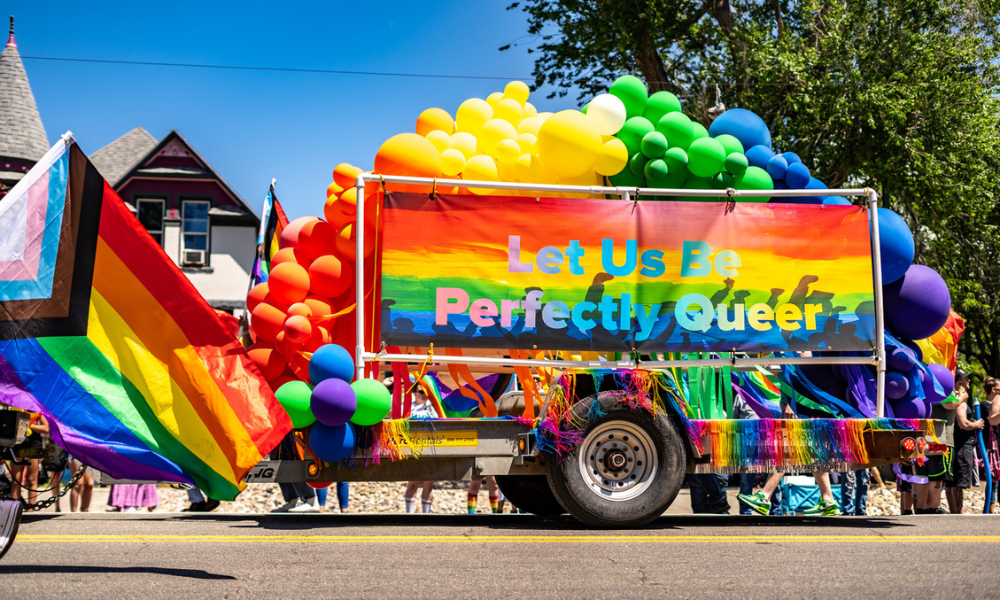
How and why should employers support closeted workers in their coming out?

The workplace is a far safer place for members of the LGBTQ+ community today compared to years past, according to a recent report.
Overall, 80% of these workers are comfortable being ‘out’ at work – compared to the 36% who reported that in 2016, notes Out Leadership, a global LGBTQ+ business platform for CEOs and multinational companies.
“What stood out to me specifically about that stat was just the growth that we've seen in a short amount of time,” says Jane Barry-Moran, managing director and director of research and program strategy, Out Leadership, in talking with HRD.
“Especially in today's world, we're seeing so much pushback on the LGBTQ+community all around the world in terms of rhetoric and the ways in which we show up in the media. But to see that behind that there's a lot of progress.”
“To see that level of progress in the largest corporations in the world is amazing,” she says.
Employers have stepped up to show their support for LGBTQ+ employees, according to a previous report.
Being out in the workplace is beneficial to workers, according to Out Leadership’s survey of 2,790 LGBTQ+ and ally employees and college students conducted between May and November 2022.
Seventy percent of out LGBTQ+ talent believe that being out in the workplace has had a positive impact on their career opportunities and advancement, and 66% say being out has had a positive effect on their ability to do business or engage with clients.
Over three-quarters (78%) say that being LGBTQ+ has helped them build their personal and professional networks. Nearly six in 10 (57%) of out LGBTQ+ workers are deemed high-potential or key talent by their employers and score high on resilience and empathy, two traits that research shows to be highly correlated with performance and leadership potential, according to Out Leadership.
Being LGQTQ+ friendly also brings a lot of positives for employers. Over nine in 10 (92%) of respondents consider a company’s reputation around LGBTQ+ inclusion when job seeking, and 86% say that visible LGBTQ+ senior leaders make an organization an attractive employer.
“When you create a culture where people are comfortable being out, that culture is actually better for everyone,” says Barry-Moran. “If you're actively creating a culture where people can feel comfortable being themselves and bringing themselves to work and sharing that part of themselves, that benefits everyone, not just the LGBTQ plus community.”
Previously, Indeed announced it is going to pay $10,000 to trans employees who need to relocate or receive gender-affirming care due to anti-trans legislation.
And employers have been stepping up, says Barry-Moran.
“When companies have, over the last few decades, really named their values and named their support for the LGBTQ plus community more broadly, clients, stakeholders, but especially for their employees internally, it's had a huge impact on culture.”
She also shared how at a summit that Out Leadership held in Asia 10 years ago they heard that being out at work was “the place that they felt safest”.
Despite the progress, some workers are still left closeted. For example, trans and non-binary employees are more likely than other LGBTQ+ employees (9% compared with 7%) to say they are uncomfortable being out at work, and many feel it hasn’t been good for their careers.
Also, Black lesbian employees are 1.6x more likely than other LGBTQ+ employees (41% compared with 26%) to say they’ve felt uncomfortable or insulted by comments made by colleagues about the LGBTQ+ community and are much more inclined to cover.
Non-binary employees are the most likely of all LGBTQ+ employees to disagree (34% compared with 27%) that their employer takes action to protect its LGBTQ+ employees from offensive comments or behaviors.
Black women’s hair is 2.5x more likely to be perceived as unprofessional, according to a previous report.
With workers still closeted, there’s still work to be done for employers, says Barry-Moran.
“It's about modeling the environment where they don't have to be afraid to be out. If you're suspicious that someone on your team is part of the LGBTQ+ community, do not ask them or make them uncomfortable.
“People are on their own journey and they will get to that point when they are ready. But what you can do as a manager as a culture setter, is create space where there’s no question for that person that they would be safe and affirmed for being part of the LGBTQ+ community.”